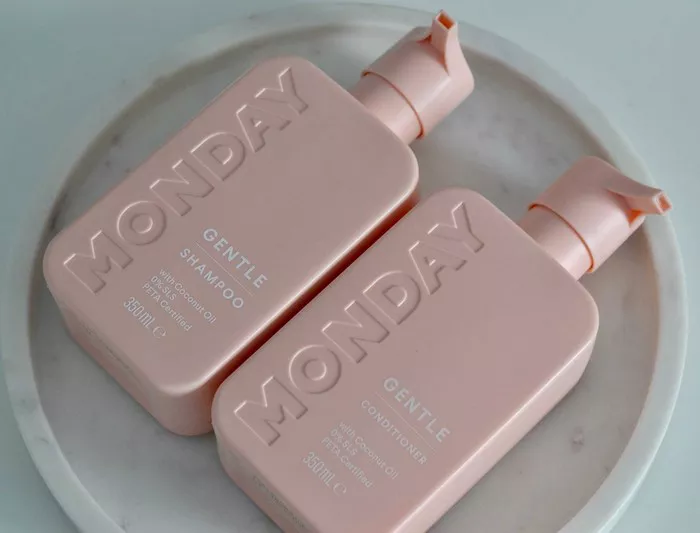In the realm of hair care, myths and misconceptions often circulate, leaving consumers bewildered about what practices are beneficial and what could potentially harm their precious locks. One such myth that has garnered attention is whether Monday hair care routines contribute to hair loss. Despite the prevalence of this belief, it is essential to dissect the science behind hair care and explore the validity of such claims.
Understanding Hair Growth and Loss
Before delving into the specifics of Monday hair care, it is crucial to comprehend the fundamentals of hair growth and loss. The human scalp contains approximately 100,000 hair follicles, each capable of producing a hair shaft through a process called hair growth cycle. This cycle comprises three main phases:
1. Anagen Phase: This is the active growth phase where hair follicles produce new hair cells. The duration of the anagen phase determines the length of the hair.
2. Catagen Phase: In this transitional phase, hair growth slows down, and the hair follicle shrinks. This phase marks the end of active hair growth.
3. Telogen Phase: Often referred to as the resting phase, hair follicles remain dormant, and old hairs are shed to make way for new ones.
Hair loss, also known as alopecia, can occur due to various factors, including genetics, hormonal changes, medical conditions, and external influences such as styling practices and hair care routines.
Monday Hair Care: Separating Fact from Fiction
The notion that Monday hair care contributes to hair fall seems to stem from the belief that excessive washing or manipulation of the hair on the first day of the week can weaken the follicles and lead to increased shedding. However, there is limited scientific evidence to support this claim.
Hair care practices, including washing, conditioning, and styling, are essential for maintaining scalp health and promoting optimal hair growth. While overwashing or using harsh products can strip the scalp of its natural oils and potentially cause damage, adhering to a consistent hair care routine, regardless of the day of the week, is unlikely to be the sole cause of hair loss.
Factors Influencing Hair Health
Instead of attributing hair loss to a specific day of the week, it is essential to consider various factors that can impact hair health and shedding patterns. These factors may include:
1. Genetics: Family history plays a significant role in determining one’s susceptibility to hair loss. Conditions such as male pattern baldness and female pattern hair loss are hereditary and can influence hair density and thickness.
2. Hormonal Changes: Fluctuations in hormone levels, such as those experienced during puberty, pregnancy, and menopause, can affect the hair growth cycle and lead to temporary or permanent hair loss.
3. Medical Conditions: Certain medical conditions, such as alopecia areata, thyroid disorders, and autoimmune diseases, can disrupt normal hair growth and result in hair loss.
4. Stress and Diet: Psychological stress, nutritional deficiencies, and poor dietary habits can impact overall health, including the health of the hair follicles. Adequate nutrition and stress management techniques are essential for maintaining healthy hair.
5. Styling Practices: Excessive heat styling, chemical treatments, tight hairstyles, and improper hair care techniques can cause damage to the hair shaft and contribute to breakage and hair loss.
By addressing these underlying factors and adopting healthy hair care habits, individuals can mitigate the risk of excessive hair shedding and promote optimal hair growth.
Maintaining a Balanced Hair Care Routine
Regardless of the day of the week, maintaining a balanced hair care routine is essential for promoting scalp health and minimizing hair loss. Here are some tips to keep in mind:
1. Choose Gentle Products: Opt for mild shampoos and conditioners that are suitable for your hair type. Avoid products containing harsh detergents or chemicals that can strip the scalp of its natural oils.
2. Limit Heat Styling: Minimize the use of heat styling tools such as blow dryers, flat irons, and curling wands, as excessive heat can damage the hair cuticle and lead to breakage.
3. Protect Your Hair: Use heat protectant sprays or serums before heat styling, and wear a hat or scarf to shield your hair from the sun’s harmful rays and environmental damage.
4. Practice Gentle Detangling: Use a wide-tooth comb or a detangling brush to gently remove knots and tangles from wet hair. Avoid aggressive brushing or combing, especially when the hair is dry.
5. Massage Your Scalp: Regular scalp massages can stimulate blood flow to the hair follicles and promote healthy hair growth. Use your fingertips to gently massage the scalp in circular motions for a few minutes each day.
6. Eat a Balanced Diet: Incorporate nutrient-rich foods such as fruits, vegetables, lean proteins, and healthy fats into your diet to support overall hair health.
7. Manage Stress: Practice stress-reduction techniques such as meditation, yoga, or deep breathing exercises to minimize the impact of stress on hair health.
By incorporating these practices into your hair care routine and focusing on overall scalp health, you can maintain luscious locks and minimize the risk of hair loss, regardless of the day of the week.
Conclusion
In conclusion, the notion that Monday hair care contributes to hair fall is not supported by substantial scientific evidence. Instead of fixating on a specific day of the week, individuals should focus on adopting healthy hair care practices, addressing underlying factors that contribute to hair loss, and promoting scalp health. By understanding the complexities of the hair growth cycle and implementing a balanced approach to hair care, individuals can maintain vibrant, healthy hair year-round.


